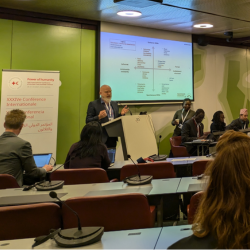-
Study
-
Quick Links
- Course Search
- Unlock Your Potential
- Still time to Apply
- Higher and Degree Apprenticeships
- Continuing Professional Development
- Book an Open Day
-
Undergraduate
- Course Search
- Application Guides
- UCAS Exhibitions
- Foundation Years
- Fees and Funding
- School & College Outreach
- Information for Parents
-
Postgraduate
- Course Search
- Application Guide
- Postgraduate Research Degrees
- Flexible Learning
- Fees and Funding
- Change Direction
- Register your Interest
-
Student Life
- Students' Union
- The Hub - Student Blog
- Accommodation
- Northumbria Sport
- Support for Students
-
Experience Northumbria
- Open Days & Events
- Virtual Tours
- Campus Tours
- Life in Newcastle
-
-
International
International
Northumbria’s global footprint touches every continent across the world, through our global partnerships across 17 institutions in 10 countries, to our 277,000 strong alumni community and 150 recruitment partners – we prepare our students for the challenges of tomorrow. Discover more about how to join Northumbria’s global family or our partnerships.
View our Global Footprint-
Quick Links
- Course Search
- Undergraduate Study
- Postgraduate Study
- Information for Parents
- London Campus
- Northumbria Pathway
- Sign up for Information
-
International Students
- Information for Students
- International Events
- Application Guide
- Entry Requirements and Education Country Agents
- Global Offices
- English Requirements
- English Language Centre
- International student support
-
International Fees and Funding
- International Undergraduate Fees
- International Undergraduate Funding
- International Masters Fees
- International Masters Funding
- International Postgraduate Research Fees
- International Postgraduate Research Funding
-
International Partners
- Agent and Representative Network
- Global Partnerships
- Global Community
-
International Mobility
- Information for Northumbria Students
- Information for Incoming Exchange Students
-
-
Business
Business
The world is changing faster than ever before. The future is there to be won by organisations who find ways to turn today's possibilities into tomorrows competitive edge. In a connected world, collaboration can be the key to success.
More on our Business Services -
Research
Research
Northumbria is a research-rich, business-focused, professional university with a global reputation for academic quality. We conduct ground-breaking research that is responsive to the science & technology, health & well being, economic and social and arts & cultural needs for the communities
Discover more about our Research -
About Us
-
About Northumbria
- Our Strategy
- Our Staff
- Place and Partnerships
- Leadership & Governance
- Academic Departments
- University Services
- History of Northumbria
- Contact us
- Online Shop
-
-
Alumni
Alumni
Northumbria University is renowned for the calibre of its business-ready graduates. Our alumni network has over 246,000 graduates based in 178 countries worldwide in a range of sectors, our alumni are making a real impact on the world.
Our Alumni - Work For Us
What will I learn on this module?
In this module you will learn about the capital risks faced by financial institutions. These include credit risk, risks from securitisation exposure, market risk and liquidity risk. You will study the specific areas of credit, market and liquidity risk in the context of the relevant regulatory framework (The Basel Accords) and draw on case study material provided by high profile banks and financial institutions. You will be expected to develop an understanding of the nature of these interlinked risks as well as to understand how they are measured and managed in line with regulations. The module will cover topics such as:
• A typology of risk in banking and financial institutions: definitions; types; and importance.
• International banking regulation and capital adequacy.
• Credit, market and liquidity risk regulatory framework under the Basel Accords.
• Credit Risk: Consumer/commercial credit risk and credit decision making; Measuring credit risk through credit scoring models and modern advanced techniques; counterparty credit risk using examples of the loan and derivative networks, including how to calculate counterparty credit risk via the credit valuation adjustment.
• Market Risk: Measuring market risk through Value-at-Risk models (variance-covariance, historical simulation and Monte-Carlo simulation models); the move toward expected shortfall; other contemporary regulatory models.
• Liquidity Risk: Market and balance sheet sources; measurement techniques; stored vs purchase management styles.
How will I learn on this module?
You will learn in this module through lectures (24 hours) IT-based workshops (12 hours) tutor based (82 hours) and independent study (82 hours). The lectures will be used to deliver the basic knowledge and subject material required to enable students to meet the module learning outcomes. Lectures will be research-led with a significant practical component attached to them. Workshops will develop understanding and knowledge by reinforcing subject material and exploring relevant issues with material distributed in advance. You will learn through individual and group work, presentations and discussion which will develop your discussion and analysis skills. The workshops will provide an opportunity for you and your teaching team to interact and discuss the materials with other students. You will also explore case-studies to help you contextualise what you have read. The module will involve both directed and independent learning. Directed learning plays a key part in the achievement of the module learning outcomes and provides an opportunity for self-assessment of your progress throughout the semester. Directed learning may include a range of activities including pre-reading, preparation for workshop activity and preparing for presentations. Independent learning is learning which you identify by pursuing areas of interest that provide deeper or broader knowledge of the subject, through a range of learning activities that might include reading, reflection and research.
How will I be supported academically on this module?
You will be supported by a teaching and learning plan (TLP), which outlines the pattern and content of the formal sessions, tutor-directed study and independent reading. You will be supported throughout by the module teaching team who are available to answer your questions either in person or by email/telephone. Your module is supported by the e-learning portal which contains lecture and workshop materials as well as additional material for independent study. Your lectures will be recorded and uploaded to the e-learning portal which you will be able to access to consolidate your knowledge and develop understanding. Your electronic reading list includes core material to support your lectures/workshops and a comprehensive range of professional and regulatory reports/articles and academic journal articles relevant to your studies.
What will I be expected to read on this module?
All modules at Northumbria include a range of reading materials that students are expected to engage with. Online reading lists (provided after enrolment) give you access to your reading material for your modules. The Library works in partnership with your module tutors to ensure you have access to the material that you need.
What will I be expected to achieve?
Knowledge & Understanding (KU):
• Develop a knowledge and understanding of capital risk in financial institutions arising from credit, market and liquidity risk. (MLO1)
• Critically evaluate measurement models and management issues in the context of the regulatory requirements within the banking and finance sector. (MLO2)
Intellectual / Professional skills & abilities (IPSA):
• Develop quantitative and qualitative evaluation skills whilst measuring and managing the risks covered in this module. (MLO3)
• Develop an ability to apply and effectively communicate regulatory requirements to real-life banking and financial institution scenarios (MLO4)
Personal Values Attributes (PVA):
• Develop an awareness of the risks facing international financial markets and how management can be equipped with knowledge and expertise to implement stronger organisational controls to address risks. (MLO5
How will I be assessed?
Formative Assessment:
Formative assessment will take place through individual and group work on directed questions/case studies to take place at the end of each substantive area covered in the module. You will discuss these substantive areas in the workshops after each lecture so that you can obtain direct feedback on the module content and the assigned tasks. You should be aware that formative feedback can and will occur in any communication with the academic tutor.
Summative Assessment:
The module is assessed by two elements:
1. Group presentation (15 mins) on contemporary issues in risk management to be presented during the semester (20%). (MLO3 and MLO4)
2. 2500 word assignment (80%). (MLO1, MLO2, MLO3, MLO4, MLO5)
Pre-requisite(s)
None
Co-requisite(s)
None
Module abstract
The banking and financial services industry operates in a risk structured environment. Financial institutions are required to measure, manage and transfer risk under the constant eye of the financial regulators. The module focuses on the specific area of capital risk arising from credit risk, securitisation exposure, market risk and liquidity risk. This will be conducted within the context of the relevant regulatory framework and draw upon case study material provided by high profile banking and financial institutions.
Course info
UCAS Code N1NK
Credits 20
Level of Study Undergraduate
Mode of Study 1 year Full Time
Department Newcastle Business School
Location City Campus, Northumbria University
City Newcastle
Start September 2025 or September 2026
All information is accurate at the time of sharing.
Full time Courses are primarily delivered via on-campus face to face learning but could include elements of online learning. Most courses run as planned and as promoted on our website and via our marketing materials, but if there are any substantial changes (as determined by the Competition and Markets Authority) to a course or there is the potential that course may be withdrawn, we will notify all affected applicants as soon as possible with advice and guidance regarding their options. It is also important to be aware that optional modules listed on course pages may be subject to change depending on uptake numbers each year.
Contact time is subject to increase or decrease in line with possible restrictions imposed by the government or the University in the interest of maintaining the health and safety and wellbeing of students, staff, and visitors if this is deemed necessary in future.
Useful Links
Find out about our distinctive approach at
www.northumbria.ac.uk/exp
Admissions Terms and Conditions
northumbria.ac.uk/terms
Fees and Funding
northumbria.ac.uk/fees
Admissions Policy
northumbria.ac.uk/adpolicy
Admissions Complaints Policy
northumbria.ac.uk/complaints









